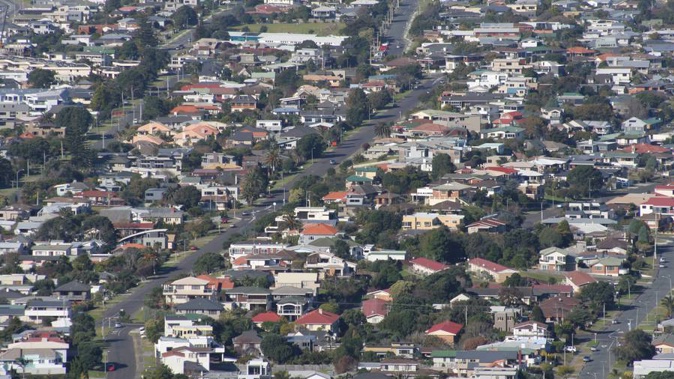
Renters are painting an image of a market where options are limited, homes are frequently run down, damp and mouldy, and often cost them at least half the weekly paycheck.
Hundreds have shared their experiences as part of a subjective review into the reality of renting in New Zealand.
The stories make for "sobering reading" said a University of Otago Professor of Public Health, Philippa Howden-Chapman.
Between June and July this year 610 people participated in the online survey and storytelling platform launched by two advocacy groups: Renters United and Action Station.
The idea was to highlight the reality for renters in New Zealand and to put "renters' stories at the heart of the debate" this election year.
In the resulting report's foreword, Howden-Chapman said the stories gave the "emotional underpinning to the statistics".
"We know already from all too many studies that there is a rapidly growing problem with severe housing deprivation in New Zealand," she said. "In this timely and brave report we hear the first-hand experience of 610 adults who primarily rent in the private sector."
The report titled, People's Review of Renting, followed one released on Monday by the Public Service Association which showed how 57 per cent of 2500 Aucklander members it surveyed had contemplated leaving the city because of housing issues - affordability was a key problem.
More than half were paying at least half their income on housing costs.
Co-author of today's report, Rick Zwaan, said the stories gave the statistics a face.
"We know human stories can be really powerful in driving change."
He said the report highlighted how Kiwis were paying costly rents on dilapidated, damp and overcrowded houses.
Of these many felt powerless to complain to landlords as they were fearful of rent rises or evictions.
Karissa, 25, was a solo mum of two kids living in a three-bedroom house in Invercargill where she paid $240 a week - just under half of her weekly benefit.
She described the house as draughty, full of holes and black mould. It was the fourth one she'd had in almost as many years.
While the solo mum said it was her choice to leave all of her previous rentals she found it was getting harder to find a good-quality house at a reasonable price.
The former photographer wanted to work again but said rising house prices made it tough.
I'm trapped on the benefit ... I really want to work, but I'd be earning less money...I don't know how I'd survive."
Karissa did not want to entertain buying because she felt at this stage in life it looked like a distant dream.
"I would love to have my own house, but my ability to do so in this day and age as a single mother is obviously rather difficult."
Howden-Chapman said it was a disturbing theme to see how vulnerable and powerless tenants felt about asking, let alone demanding, the right to a flat that was free from damp.
Other themes that came out of the report included people frequently talking about falling ill in cold, damp homes, limited options forcing renters to settle for less-than-desirable properties, insecure tenancies, difficulties securing a stable home and a feeling of powerlessness against landlords.
The report recommended implementation of a mandatory rental warrant of fitness, abolishing letting fees and no-fault evictions and a national housing strategy.
But Property Investors Federation executive officer Andrew King said it was not always the landlord's fault.
"Landlords are often being portrayed as nasty people ... don't think people realise that it is actually cheaper to rent than own the average New Zealand property ... and we do provide a pretty good price for properties we provide.
"A lot of the time they [low-income tenants] haven't got funds to run electricity or run heating, so without heating, insulation is pretty useless."
He supported Labour's call to help poorer families pay their power bills over a mandatory warrant of fitness for rental homes.
Labour's housing spokesman Phil Twyford said there were "too many homes at the bottom end of the market are cold and damp and mouldy."
He said with the average tenancy lasting only eleven months many families struggled to give their children a stable home.
"Families constantly moving, kids having to change schools all the time - that has a terrible effect on families and kids' education."
He said the rules around renting needed to be rewritten to give tenants warmer more secure homes.
Changes Labour was calling for included the passing of the Healthy Homes Guarantee Bill, to ensure tougher standards for insulation and heating, a fund to help property owners install heating and insulation and funds to help low-income earners pay their power in winter.
The housing minister has been approached for comment.
Key findings
• Quality of housing affects quality of life
• Limited options make renters desperate
• Renters struggle to create a stable home
• Renters feel powerless to challenge landlords
Numbers
• 62 per cent wrote about their home's condition
• 29 per cent talked about its impact on their health
• 70 per cent talked about a lack of insulation
• 61 per cent said their house did not have a fixed form of heating
• 52 per cent said it was not weathertight
Recommendations
• All rental housing is warm, health and safe
• Renters are secure and limit rent rises
• All renters have affordable housing
Take your Radio, Podcasts and Music with you









